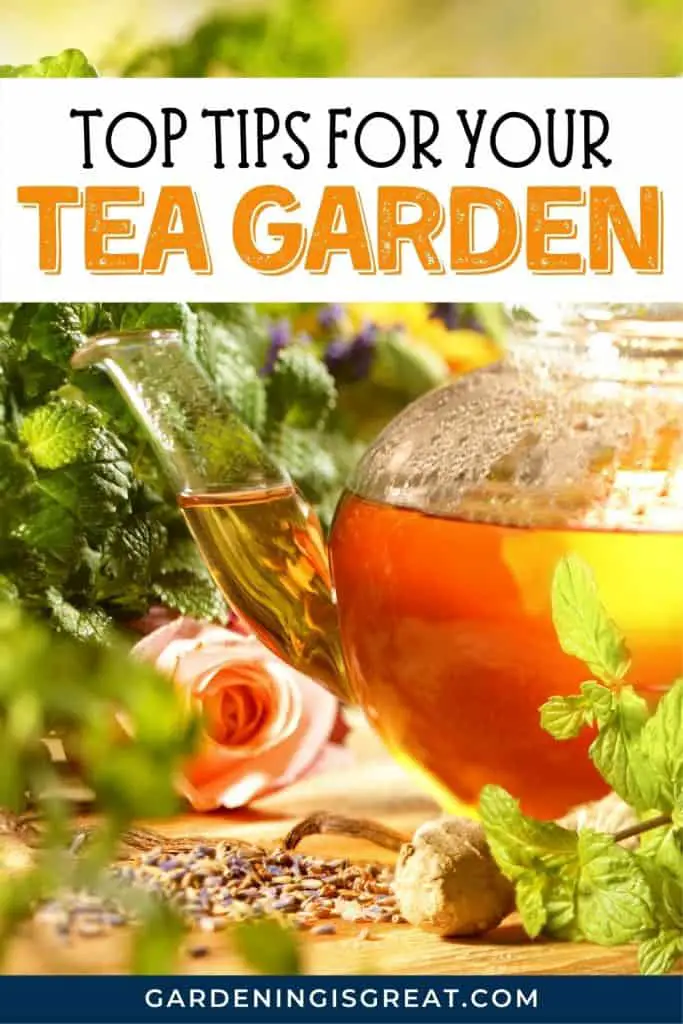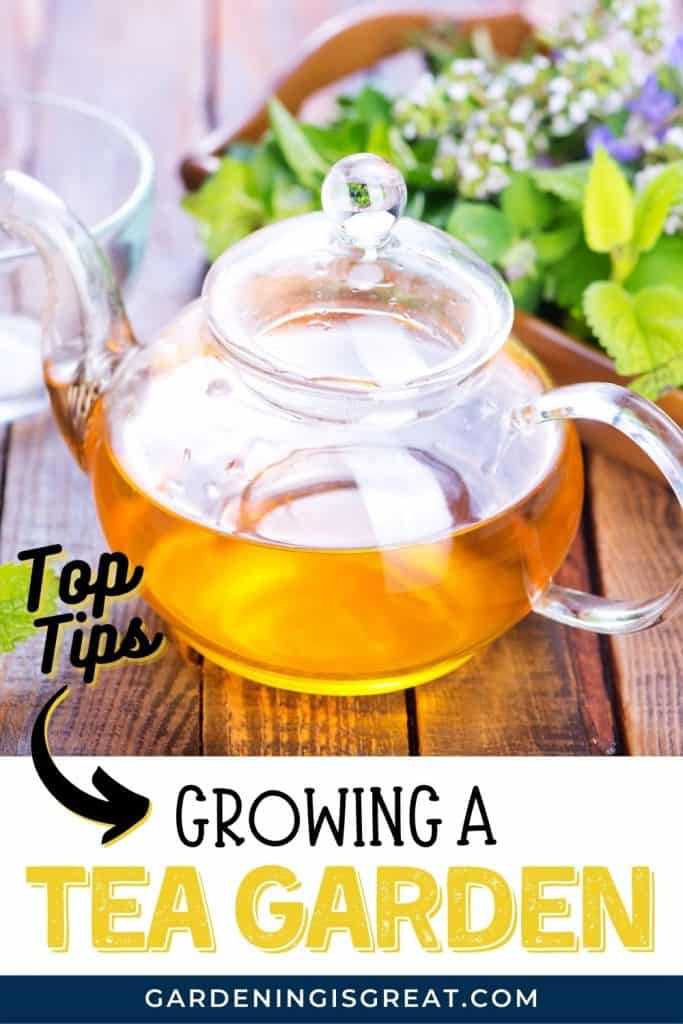Top Tips For Growing Your Own Tea Garden
Growing your own tea is a great way to be more self-sufficient. Many great herbs for your garden that can help to keep pests at bay make wonderful teas and popular herbal teas are often very easy to grow at home.
Growing your own tea can save money and allow you to have full control over the growing conditions of your food.
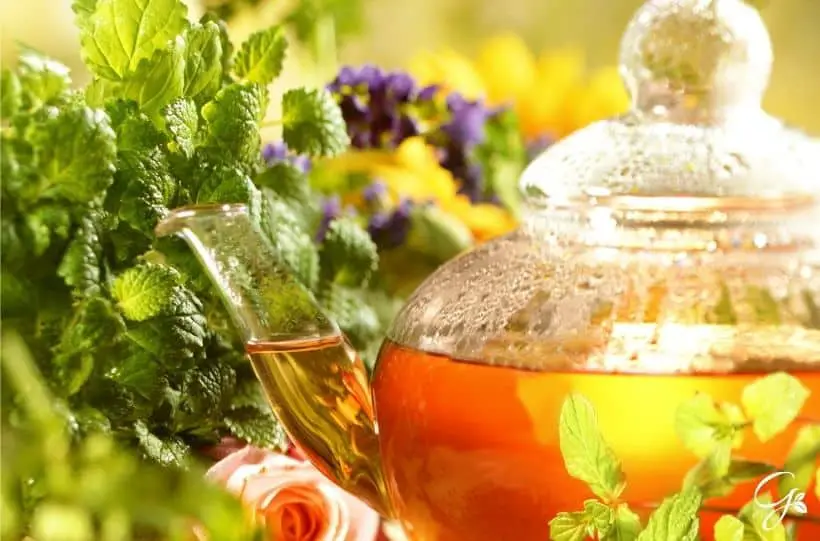
What plants should you grow in your tea garden?
When you decide to grow your own tea garden the first thing you need to do is decide what plants you want to grow to make your own herbal teas. There are a large number of options for your herbal tea garden all with different flavors and uses.
You can use more medicinal herbs like echinacea for your tea garden or try a calming tea like chamomile to grow. Some of the best tea garden options are:
Mint
This simple staple herb is great for growing into a tea that can add flavor to your favorite drinks, smooth and upset the digestive system, and calm your nerves.
Chamomile
If you are looking for an easy-to-grow tea that has a mild flavor and works well for helping calm the nerves and improving sleep.
Echinacea
If you want an immune-boosting tea that can help you bounce back from common seasonal illnesses this flower is worth adding to your garden.
Keep in mind that this one does take 2 years to flower and is a perennial so it should be planted where it will be safely out of the way.
Ginger
Ginger is a root that many people do not think about when they are thinking about growing tea but this tea is one of the most soothing options for dealing with things like morning sickness.
Lemon balm
Lemon balm is a great addition to your garden and will even help to attract pollinators, but the best part about this herb is that it makes a wonderful calming tea that can help you rest.
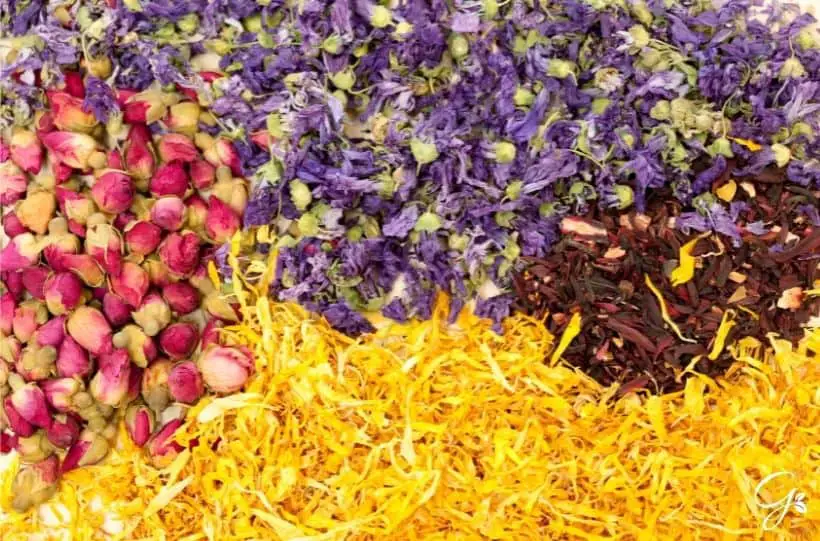
How to get more flavorful tea
How you grow your tea herbs matters if you want to have more flavor. The flavor compounds in your tea come from the essential oils naturally in the plants you are growing.
There are a few things you can do to help give your herbs a stronger flavor to help make your tea more flavorful.
Avoid over-watering in the last few weeks before you harvest your herbs. If you overwater your herbs you may get a larger plant but the plants will have less flavor giving you a more watery final product from the teas you brew using the plants in your garden.
Reduce your fertilizer or skip it altogether. For a flavorful tea, you can easily skip the fertilizers altogether and opt to simply till compost into the soil before planting your annuals.
For any perennials you are planting, consider adding a layer of compost at the beginning of the season to nourish the soil for strong healthy plants.
And, if you do opt to use a fertilizer be sure to stop adding it within six weeks of harvesting to allow the plant time to develop a stronger flavor and aroma before harvesting.
Safety tips for growing your own tea
You need to be careful when you are growing your herbs for tea. Because you drink the steeped leaves and flowers of your herbs in large amounts for tea, you are exposed to any chemicals that have been used on them. This is why it is best to grow your tea and medicinal herbs organically.
For the best results plant in a raised bed or pot using organic soil. This will eliminate the risk of any chemicals that may be in your soil. (If you have not lived in your house for 10 or more years with full knowledge of what was used in your yard this is truly the best option to be sure that you are growing tea that is safe to ingest.)
Avoid using herbicides to control weeds in your garden. Instead, opt to use natural and organic methods like hand pulling and mulching to control unwanted plants in your garden beds. This will help to prevent contamination of your tea and in turn your body when you drink that tea.
The most common contaminant in the garden comes from pesticides. Some of which can be extremely harmful to the human body.
For the best results use natural pest control. You want to take advantage of things like companion planting, natural predators like ladybugs and hummingbirds, and other natural pest control methods like crushed eggshells.
These methods will help your garden thrive while eliminating any exposure to harmful chemicals. If at all avoidable you want to skip pest control methods like insecticidal soap and neem oil in your tea garden as they can be harder to fully remove before making your tea.
Harvest and preserve your homegrown teas
Take the time to get to know each plant in your tea garden. Most plants you’re harvesting for the leaf you will want to harvest before they bloom to help ensure the best flavor. Many herbs will turn bitter after they bloom.
For others like chamomile, lavender, and hibiscus you will want to harvest the flower itself after it has bloomed but before they have matured and gone to seed.
After you harvest your plant you will want to dry them right away.
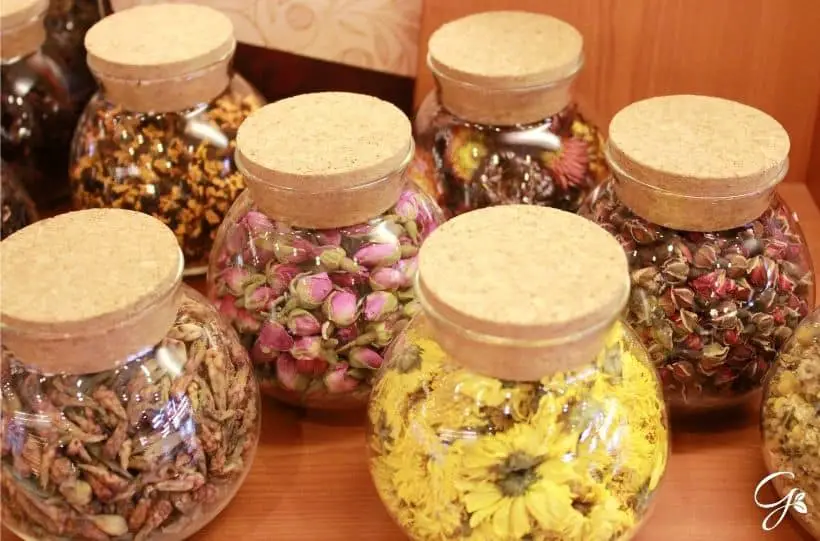
While hanging herbs to dry in a cool dark place is traditional, using a modern dehydrator will give you a faster dry that will allow you to get your tea into an air-tight container where the flavor and aroma will be retained.
Dry on the lowest setting possible and move to a jar with a lid once the herbs crush when you roll them between your fingers.
Shake once a day for the first two weeks to be sure there is no moisture left. If condensation appears you can dry them again. Adding a silica packet is a great way to prevent moisture issues in your dried teas to make them last longer.
